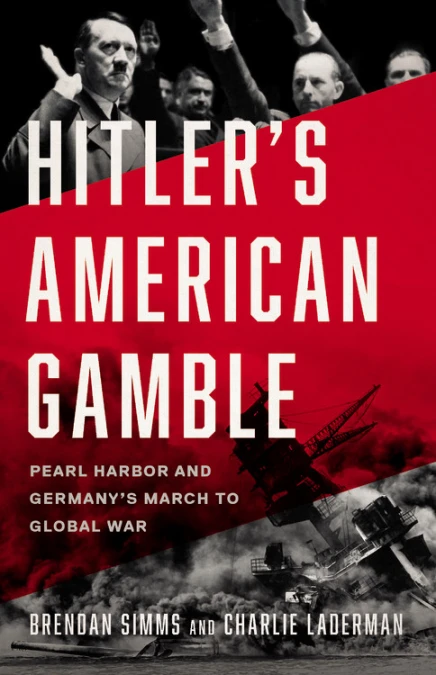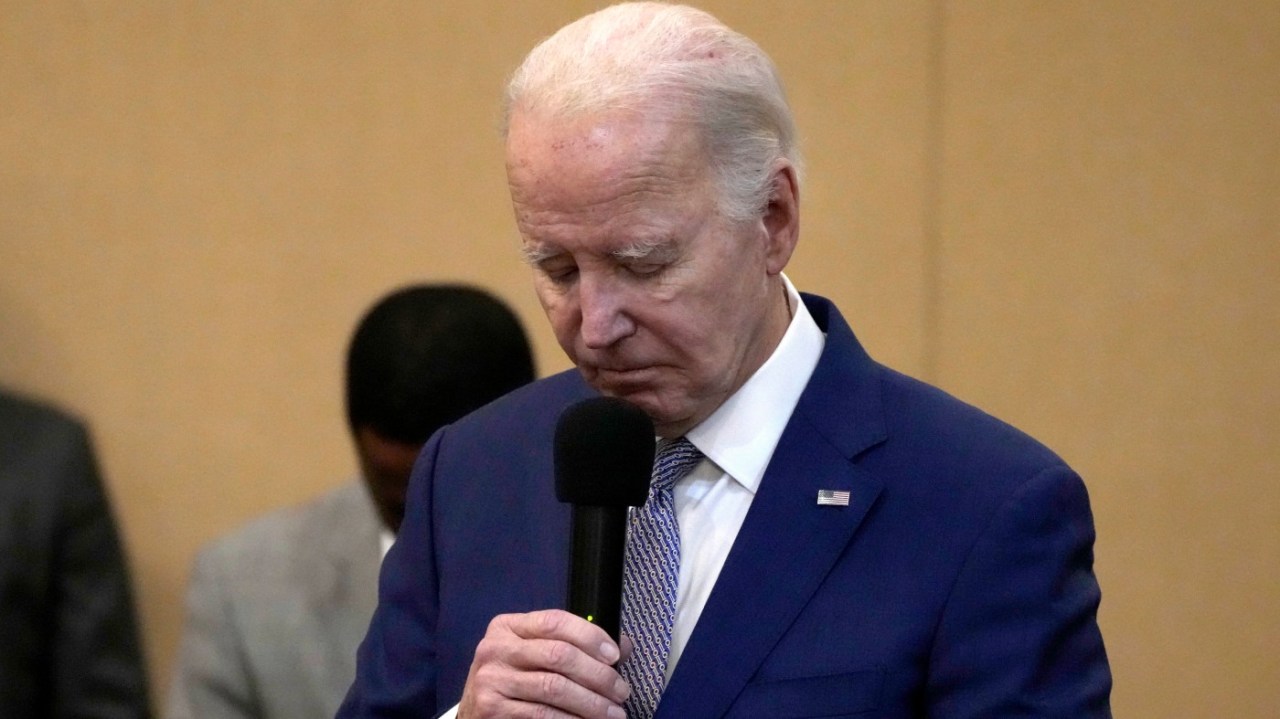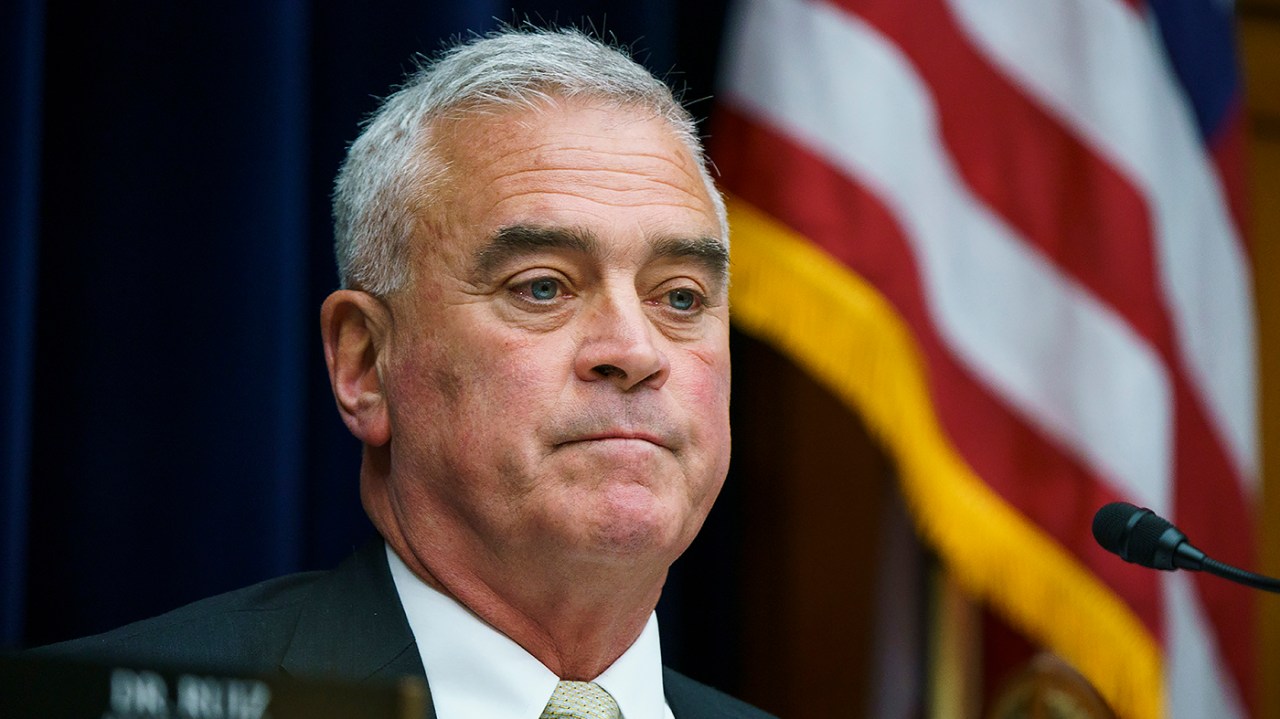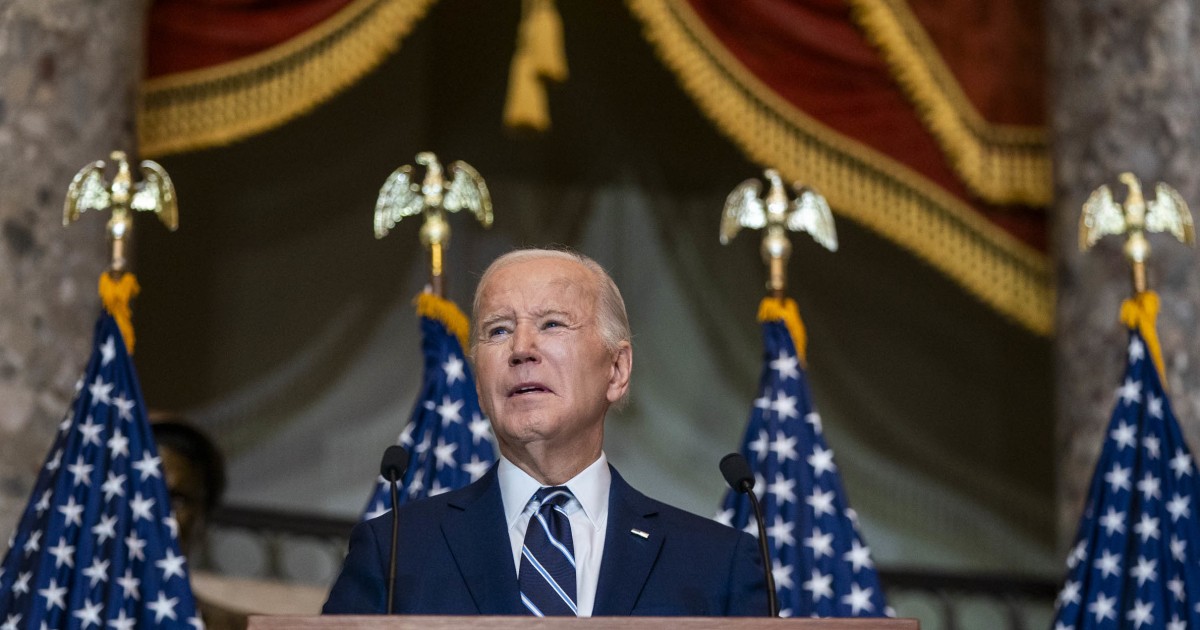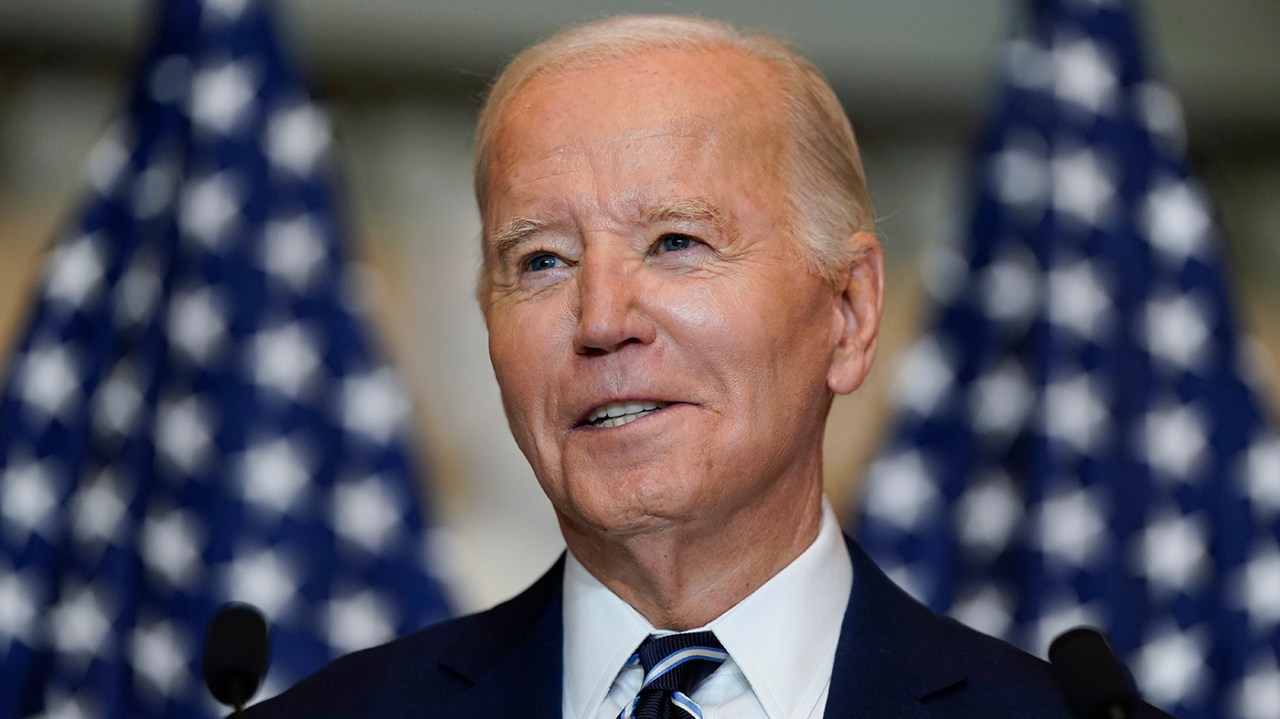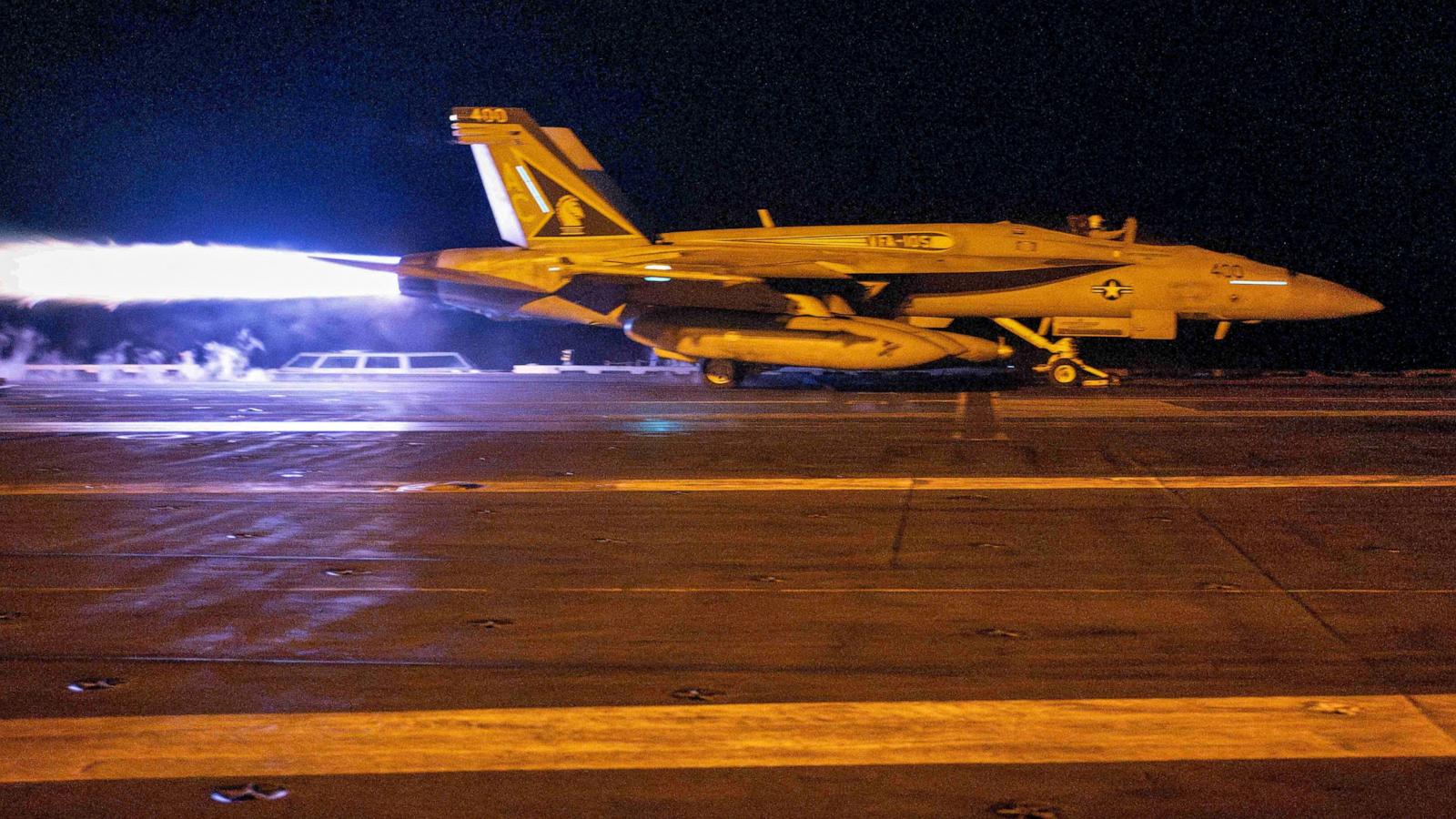Biden’s tough-talk, no-action strategy has earned him no respect from Iran
The White House’s “just barely enough” approach to Iran has painted
President Biden into a box. He now faces a put-up-or-shut-up moment, and he will likely fall short in the eyes of many Americans.
When asked if he held Iran accountable for Sunday’s
Kata’ib Hezbollah drone strike on Tower 22 in Northeastern Jordan, killing three American soldiers and wounding 40,
Biden responded, “Yes. I do hold them responsible, in the sense that they’re supplying the weapons to the people who did it.”
His response to whether he had made a decision on how he would respond to the attack was a simple one word answer: “
Yes.” The country now awaits the response that Secretary of State
Antony Blinken claims will be “multileveled, come in stages, and be sustained over time.”
Do not expect a debilitating kinetic response. Do not even expect a strike in Iran. Iranian Supreme Leader Ayatollah Ali Khamenei has “
told the U.S. via intermediaries that if it strikes Iranian soil directly, Tehran will itself hit back at American assets in the Middle East.”
Iran established a red-line yesterday when its representative to the United Nations,
Saeed Iravani, told reporters that giving a “strong response to enemies” who target the country is “the fundamental policy of Iran,” and that attacks on “Iran’s territory, or its interests or citizens abroad” will face a “decisive response.”
White House national security spokesman
John Kirby later told reporters, “We are not seeking a conflict with the regime in the military way.”
Iran seems to be dictating the rules, and Biden’s White House meekly obeying. Biden’s
escalation paralysis is not a problem just in Ukraine anymore — it now includes Iran. The administration’s fear of sparking a “wider war in the Middle East” has affected U.S. Central Command’s ability to respond to the
160-plus attacks that Iranian proxies have launched against U.S. bases throughout the region and continues to place American service members at risk.
Biden’s rope-a-dope strategy toward Iran is getting Americans killed and wounded. How many
dignified transfer of remains movements at Dover Air Force Base will Biden have to attend before he understands that Iran is already at war with the U.S. and has been for some time?
Israel does not seem to have a problem recognizing the hostility of Iran’s Islamic Revolutionary Guard Corps (IRGC). When the IRGC poses a threat, the Israelis act decisively, and Iran gets the message. In two airstrikes in December 2023, they killed IRGC advisor General
Seyed Razi Mousavi in a Damascus neighborhood, and another
11 IRGC officials at the Damascus International Airport.
With Biden, Iran is reacting differently. Twice, Biden has sent a message directly to Tehran, and twice they have blown him off. In poker terms, they
called his bluff, which involves plenty of vacuous, tough talk toward Iran but no direct confrontation.
His first message to Iran and Hezbollah, delivered in an interview on CBS’s “60 Minutes” in October, was, “Don’t escalate this war.” The second was delivered after the joint U.S.-United Kingdom strike on Houthi targets in Yemen.
Biden confidently stated, “I’ve already delivered the message to Iran. They know not to do anything.”
Backing up Biden’s tough talk now is problematic. It would require something this administration has struggled with — a forward-thinking plan, not a reaction. A tactical response with strategic effects.
Kirby recently commented that the U.S. would take a “
tiered approach.” But what does that entail? The solution lies in this administration’s ability to leverage the instruments of national power that are available —
diplomatic, informational, military and economic. The military arm must be the hammer that delivers the message that attacking U.S. bases is an act of war and will not be tolerated. Other instruments of national power would be applied to create additional pressure points on the regime.
There are plenty of targets available. Asked by Fox News anchor John Roberts which targets could be hit without causing escalation, former CENTCOM spokesman Joe Buccino pointed to “IRGC bases in the south that are largely empty,” “Iranian vessels, Iranian ships in the Arabian Gulf,” and “[Iranian oil refineries].
Biden could also strike against Iran’s ability to wage war by destroying the Shahed-136 drone
production facility in Esfahan, in central Iran. This is the weapon used to attack Tower 22 and civilian targets in Ukraine. He could also strike the
Iranian spy ship Saviz in the Gulf of Aden, which is likely a covert IRGC ship providing guidance for Houthi missile and drone attacks against commercial shipping and the U.S. Navy ships. Additionally, Biden could strike nuclear facilities suspected of processing
weapons grade uranium.
Merely striking back at its proxies lets Iran off the hook. Affording the Iranian government sanctuary in its own country will only escalate the situation. Biden needs to deliver what
Mike Tyson would describe as a “punch in the mouth.” Iran, much like Russian President Vladimir Putin, has no regard for the tool — proxy, mercenary or foreign fighter — only the result.
Strikes against the proxies and Iran must be followed up with the other instruments of national power. Economically, the U.S. should freeze Iranian assets, shut down Iran’s ability to refine oil and sell it on the open market, and eliminate sanction waivers and ransom payments. Deny the regime the funds it needs to wage war.
Diplomatically we must engage our Sunni Arab partners in the region — Saudi Arabia, Jordan, Iraq, Qatar, the United Arab Emirates. What are they doing to deter Iranian-backed proxies from attacking U.S. bases and commercial shipping in the Red Sea and Gulf of Aden?
Right now, the Arab world seems to be standing on the sidelines, watching the U.S., UK and Israel struggle.
Another course of action would be to expel Iranian diplomats from the U.S. and deny them leadership positions on
United Nations committees.
But Biden must do something to get Iran’s attention. Iran may respect the power of the U.S. military, but it has no fear of the commander in chief currently leading it.
Col. (Ret.) Jonathan Sweet served 30 years as a military intelligence officer. Mark Toth writes on national security and foreign policy.
The White House’s “just barely enough” approach to Iran has painted President Biden into a box.

thehill.com


